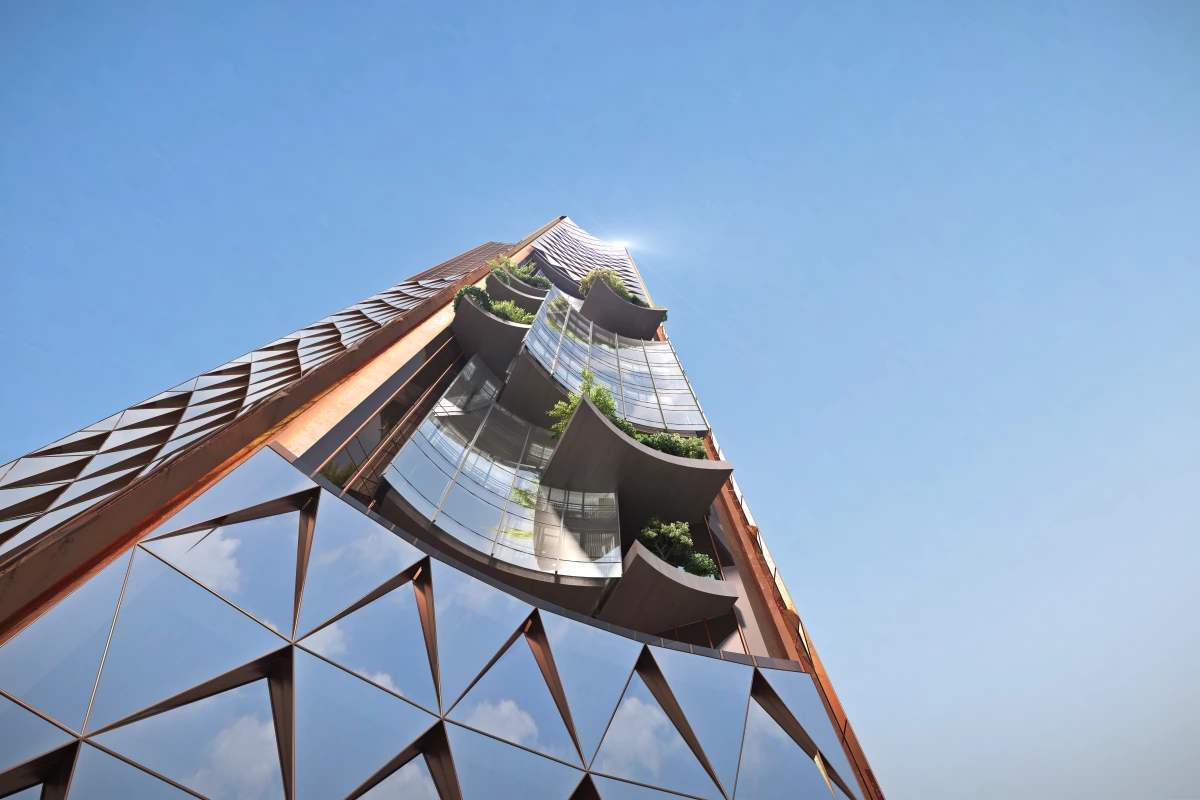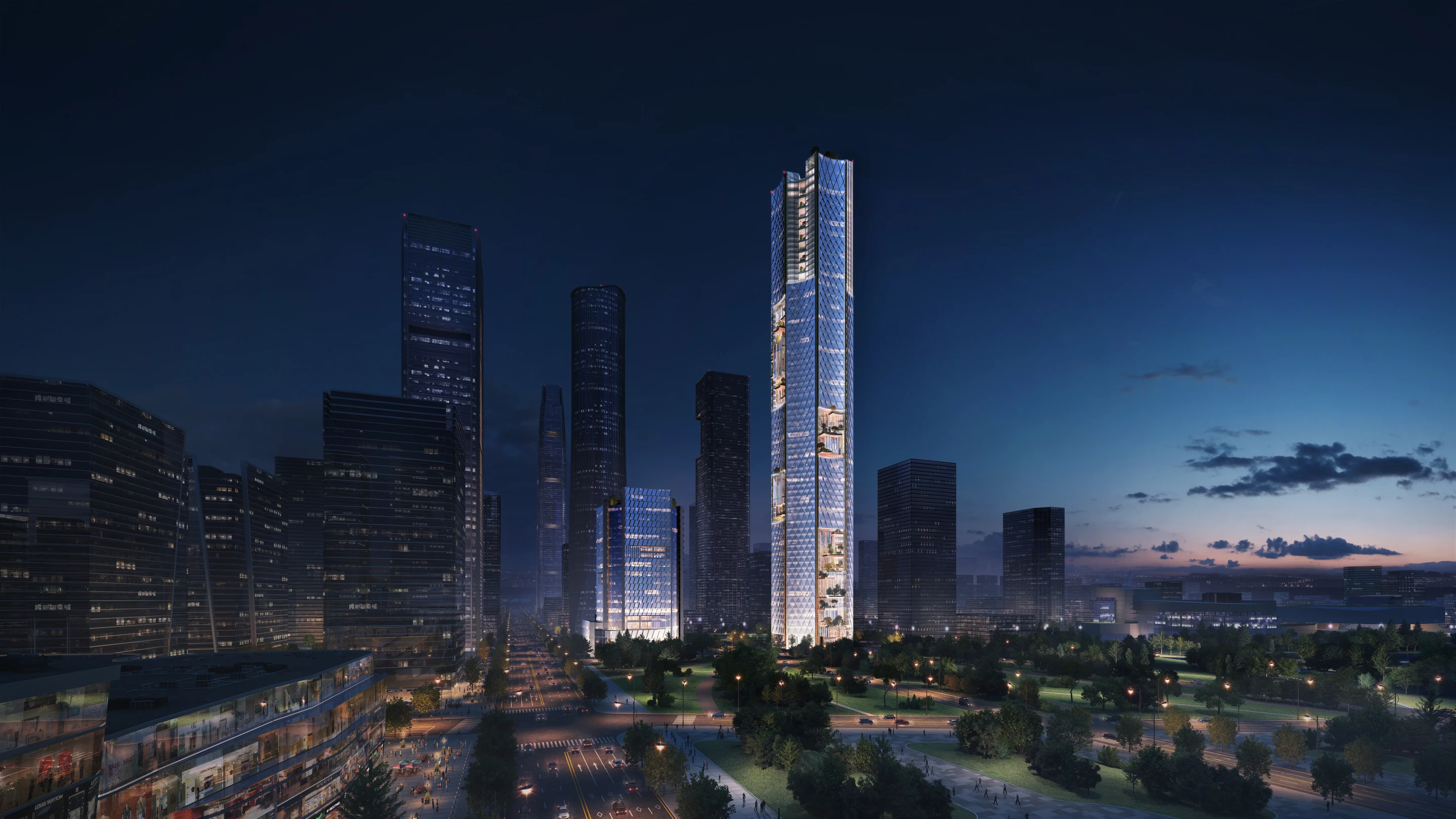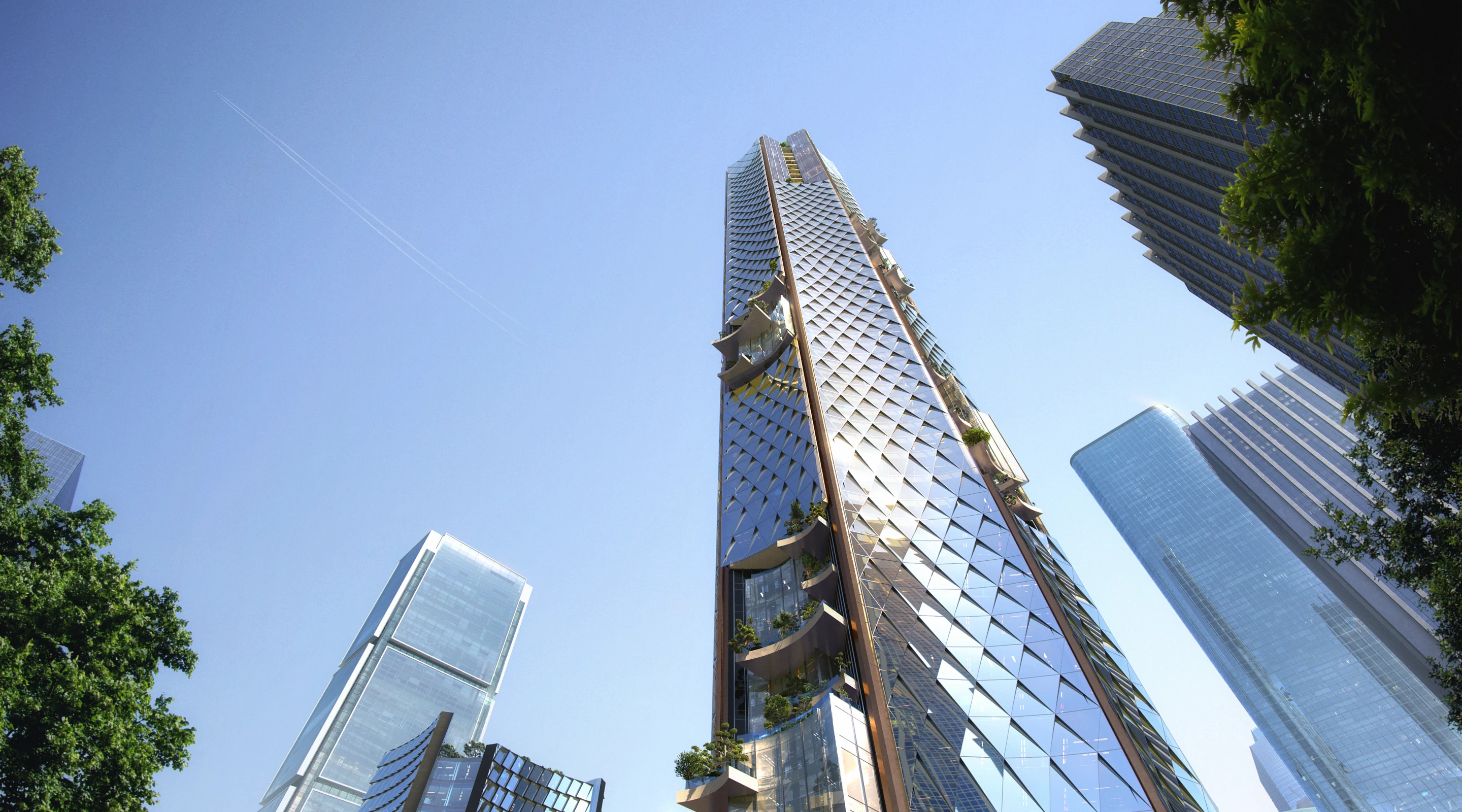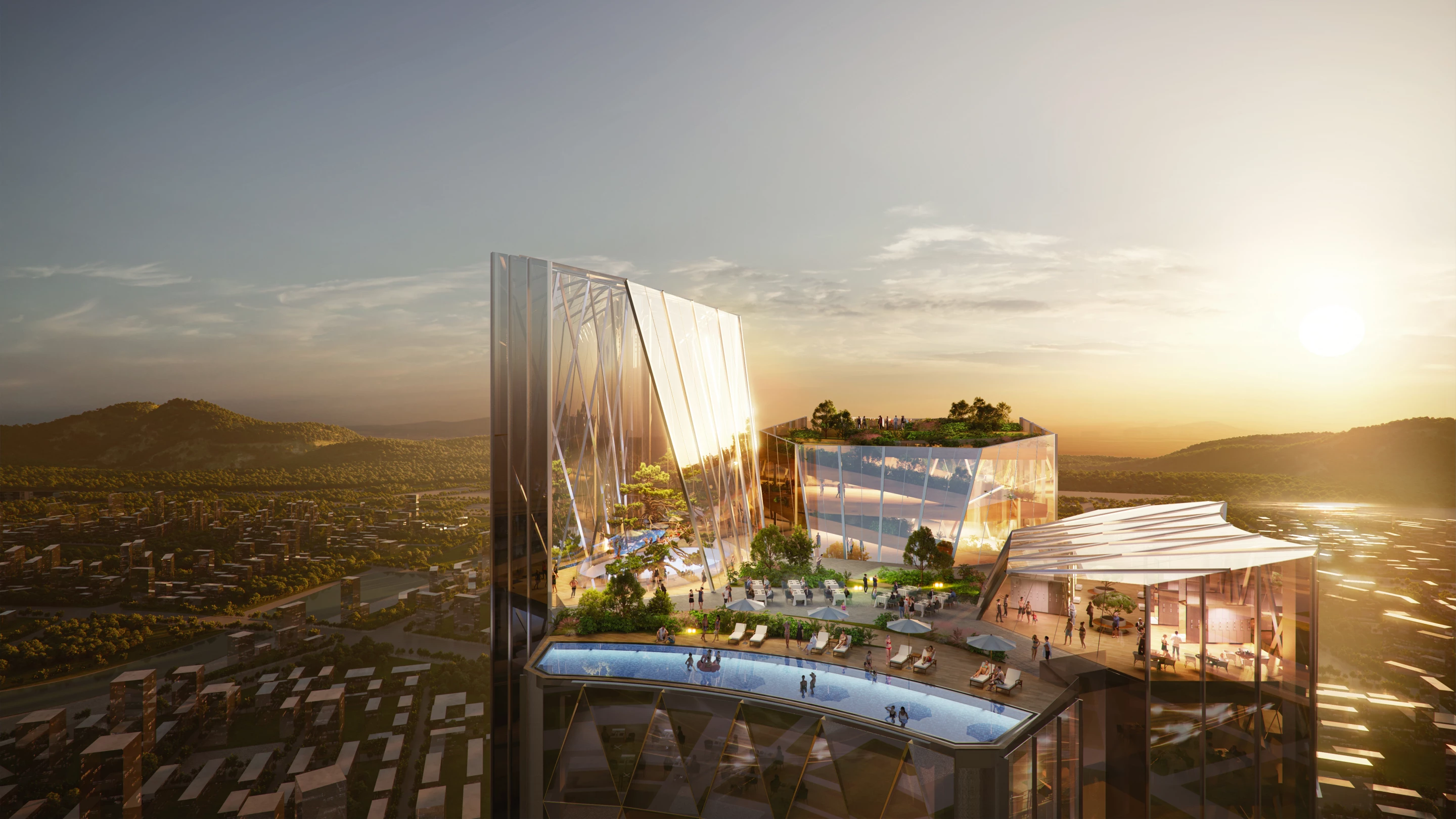Slated to rise over the city of Nanjing in China, a striking new supertall skyscraper by Büro Ole Scheeren will feature an unusual octagonal form designed to reduce wind loads. The building will also host multiple greenery filled terraces, plus a rooftop terrace area boasting choice views of the city.
The Nanjing Nexus (aka Nanjing Jiangbei New Financial Center) will be located in a burgeoning new district near the Yangtze River and will rise to a height of 350 m (1,148 ft), which makes it a genuine supertall and would place it somewhere around number 75 in the official CTBUH Top 100 worldwide rankings.
The skyscraper will take the rough form of an octagon with some chunks cut out, and will be enlivened by a patterned glazed facade that's meant to sparkle in the light, as well as the greenery and jutting terraced areas. Additionally, the project will involve the construction of a secondary smaller tower nearby that complements the design of the larger building.
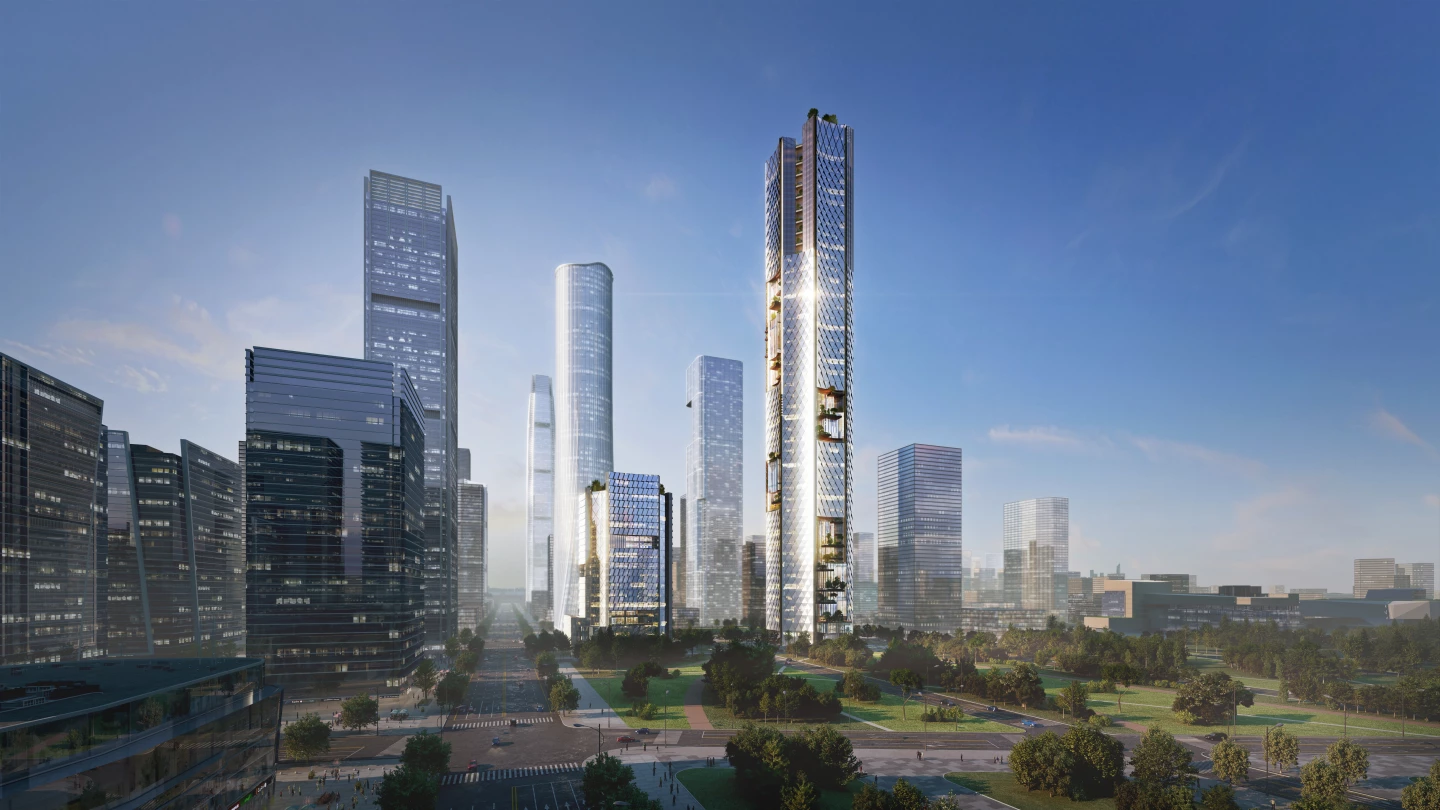
"The architectural form of Nanjing Nexus departs from the typical rectangular tower by trimming its shaft into an octagon and carving each facet into a concave bay, harnessing the energy of the context, and embracing the surrounding city," explained the firm. "The concave surfaces of the three-dimensionally textured facade are designed to optimize the building's solar performance and reduce structural wind loads, while reflecting light in reminiscence of the sparkles and ripples of the Yangtze River's waves. Nanjing Nexus presents an elegantly simple, economical, and adaptable design that can be further translated to multiple scales and functions."
Though much of the tower's interior will be given over to office space, it will also include a hotel towards the top. A rooftop terrace area will offer spectacular views over the city, as well as a swimming pool, restaurant and garden areas.
The Nanjing Nexus' design was recently declared the winner of an international architecture competition. We've no word yet on when it's expected to be completed, but this is not Büro Ole Scheeren's first unusual skyscraper rodeo, having recently announced that its Jenga-like tower is going ahead.
Source: Büro Ole Scheeren
